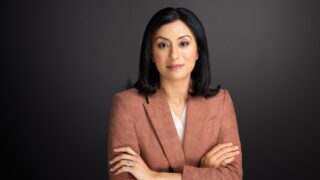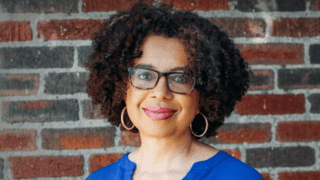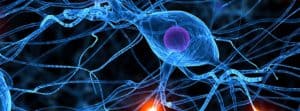The Lavin Agency Speakers Bureau
A speakers bureau that represents the best original thinkers,
writers, and doers for speaking engagements.
A speakers bureau that represents the best original thinkers,
writers, and doers for speaking engagements.
The way we think about focus and distraction is outdated. We need to embrace the way we pay attention to unlock our full potential.
To many, it appears that we’re living in a time of attention crisis. People are finding it harder and harder to focus on single tasks. But what if the way we’ve been thinking about attention and focus is outdated? With his new investigation into how we pay attention, Paul Tough offers a new perspective on the existing model. The NYT bestselling author and leading voice on education and childhood success calls for us to change our relationship with attention and the distracting world around us, embrace our curiosity, and listen to the story our brain is trying to tell us.
“Gorgeously reported. Vividly written. Utterly lucid. Paul Tough jumps skillfully between deeply engaging personal narratives and the bigger truths of higher education. The way he tells the stories of these students, it’s impossible not to care about them and get angry on their behalf.”— Ira Glass, host, This American Life
Paul Tough has devoted his career to understanding the determining factors behind student success. His most recent work takes a deep dive into psychology and the way we focus, where he forces us to question our preconceived notions surrounding attention. More people than ever are being diagnosed with ADHD, but are we really at an attention deficit? Tough’s groundbreaking research, as shown in his huge investigation for The New York Times Magazine, offers a different perspective: the world is changing, there’s more stimuli than ever before. Maybe a wandering mind—in ourselves or in our children—isn’t a sign of deficit or disorder at all, but simply a different way of experiencing the world.
In his explosive book The Inequality Machine, Paul Tough examines the inequalities in higher education from all angles—from Black enrollment rates stalling at elite schools, to College Board officials scrambling to defend the SAT in the face of mounting evidence that it favors the wealthy. A mix of cutting-edge research and personal accounts from students, this book is one that will change the way readers think—not just about education, but about America itself. The Inequality Machine has been praised in The New Yorker, The Chicago Tribune, and The New York Times Book Review. Tara Westover, author of the bestselling memoir Education, calls it “Indelible and extraordinary, a powerful reckoning with just how far we’ve allowed reality to drift from our ideals.”
In his earlier book How Children Succeed—which spent over a year on the New York Times bestseller list—Tough challenges the belief that intelligence, endlessly measured by test scores, is the sole predictor of how well a child will do in school and in life. His follow-up, Helping Children Succeed: What Works and Why, offers a practical guidebook for educators, parents, and community groups dedicated to improving the lives of children growing up in adversity, using all-new strategies based on the emerging science of success. Tough ushers in a tidal change in thinking with his argument that curiosity, conscientiousness, optimism, self-control, and grit are better indicators of success than IQ. He identifies a phenomenon in our culture that he calls the “adversity gap”: Some kids, especially those growing up in poverty, simply have too much adversity in their lives, and others, especially those growing up in affluence, actually experience too little. Tough says children develop character strengths when they persevere through adversity. And it’s our job as adults in their homes, schools, and communities to give them the support and guidance they need to manage and grow from those setbacks and disappointments.
Tough is also the author of Whatever It Takes: Geoffrey Canada’s Quest to Change Harlem and America, which chronicled the inspiring story of the Harlem Children’s Zone. He is a contributing writer to The New York Times Magazine, where he has written cover articles about first-generation college students, character education, and OxyContin addiction in Appalachia, among other topics. He has also contributed stories to This American Life, The New Yorker, The Atlantic, Esquire, and GQ.
Paul Tough not only used a very cohesive and thoughtful PowerPoint presentation format but also posed excellent inquiry questions for table discussion. Mr. Tough referred to examples from his book, challenged the audience to think about non-cognitive traits, and cited background research at appropriate times. One participant stated, 'The conversation was outstanding. It renewed my faith that the right combination of adult support, nurturing, teaching and coaching can overcome the greatest of obstacles.' The educators who attended this retreat gave it some of the highest ratings.
Martha Holden Jennings FoundationYour presentation about How Children Succeed was funny, informative and helped to demonstrate the importance of being a champion and mentor to underserved children, and the power of public media to foster engagement. I continue to hear from station leadership and project managers who were inspired by your address and are excited to think differently about ways to engage their community. Thank you again for illuminating our thoughts with your research and anecdotes.
Corporation for Public Broadcasting
CEO and Co-Founder, Zearn Math Bestselling Author, Math Mind

Speaker on AI and Education Executive Director of the Stanford Accelerator for Learning

Harvard Business School Behavioral Science Professor "40 Under 40 MBA Professor" Author of TALK: The Science of Conversation and the Art of Being Ourselves

Harvard Economist MacArthur Genius Studying Economic Opportunity Director of Opportunity Insights

Author of Indivisible: How to Forge Our Differences into a Stronger Future Founder and CEO of WatchHerWork

Author of The 272: The Families who Were Enslaved and Sold to Build the American Catholic Church Tenured Professor at New York University Former New York Times Johannesburg Bureau Chief

#1 New York Times Bestselling Author of Grit and Situated | Pioneering Researcher on Grit, Perseverance, and the Science of Success

Nobel Prize Winner | 3rd Most Cited Economist in the World | Bestselling Co-Author of Why Nations Fail and Power and Progress

Harvard Business School Behavioral Science Professor | "40 Under 40 MBA Professor" | Author of TALK: The Science of Conversation and the Art of Being Ourselves

#1 New York Times Bestselling Co-Author of Abundance | Host of thePlain English Podcast | Founder of the Substack Derek Thompson

#1 New York Times Bestselling Author of How the Word Is Passed and Above Ground | The Atlantic Staff Writer

What if everything we’ve been told about ADHD is wrong? What if a wandering mind—in ourselves or in our children—isn’t a sign of deficit or disorder at all, but simply a different way of experiencing the world?
In this insightful talk, New York Times bestselling author Paul Tough explores the cutting-edge research going on in neuroscience labs around the world and comes back with a surprising prescription: the first step in regaining control over our attention isn’t to blame—or medicate—ourselves. It’s to shift our relationship with the distracting world around us: embrace our curiosity, understand our natural limits, and listen to the story our attention is trying to tell us.


Why are young people today so stressed out about getting into their preferred school? In his latest book, The Inequality Machine, Paul Tough investigates higher education and reveals how complicated, crazy, and unfair the college admissions system has become. In this talk, he argues that our obsessive focus on getting our kids into prestigious colleges actually undermines the kind of character strengths that we want to develop in our children. The admissions anxiety that dominates many schools and communities often has the effect of turning complex, idealistic teenagers into stressed-out, competitive monomaniacs. Tough locates the roots of that madness in recent shifts in the economy and higher education, and proposes solutions that schools and parents—and society as a whole—can take to bring sanity back to the process of college admissions.

Our society currently places a great deal of emphasis on intelligence as the sole indicator of value in children’s education. But in this talk, Paul Tough lays it bare: we believe that success comes from those who score highest on tests, from preschool to SATs. Yet evidence indicates that our story here might be dead wrong. The work of a new generation of researchers and educators points to the fact that the qualities that have a better shot at indicating lifelong success are “non cognitive” or what we might refer to as “personality traits” such as: curiosity, conscientiousness, optimism, self-control, and grit.
Using the tools of science, Tough peels back the mysteries of character and traces the links between early childhood neurological development and environment. By showing how “nature” and “nurture” are intertwined, Tough explores how childhood stresses modify life success and the surprising ways that parents do—and do not—prepare their children for adulthood. Tough helps us understand how early adversity affects childhood emotional, social, and cognitive development in ways that will carry on throughout their entire lives, and what we can do about it.

It’s long been true that kids from affluent families tend to do better in school (and on standardized tests) than kids from low-income households. Despite decades of government initiatives and the tireless work of social workers, psychologists, and educators, this gap persists. It has become the central issue in American education, as over half of public school students are now classified by the federal government as ‘low-income.’
In this keynote, drawing from his new book Helping Children Succeed, Paul Tough provides a new framework for understanding the challenges of low-income children and offers some innovative solutions. It starts with the biological mechanisms that accompany adversity. Children adapt to their surroundings: Stable, loving early environments incline kids to trust and be curious. But when children grow up amidst violence or chaos—what some doctors call “toxic stress”—their stress-response systems are set to look for trouble everywhere. In school, it’s often hard for them to focus, stay calm, and trust their peers and teachers, which makes it difficult to keep up academically. They are more likely to be disciplined or punished, but less likely to receive the genuine help and understanding they need.
If we want to help children develop the character strengths like grit or self-control that Tough first explored in How Children Succeed, we first need a more thorough understanding of adversity, home life, and brain development. In a keynote that distills groundbreaking research from psychologists, economists, and neuroscientists, Tough outlines the small steps parents, educators, and civic leaders can take to meaningfully change student motivation and behavior—especially among kids from low-income backgrounds.